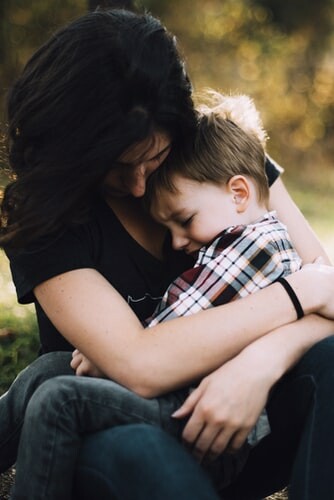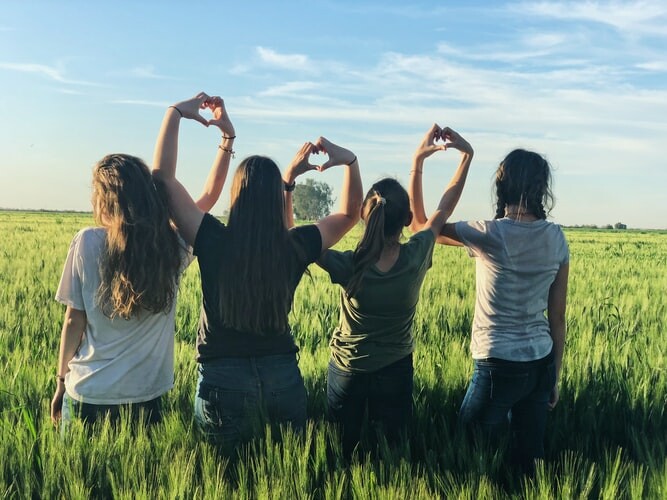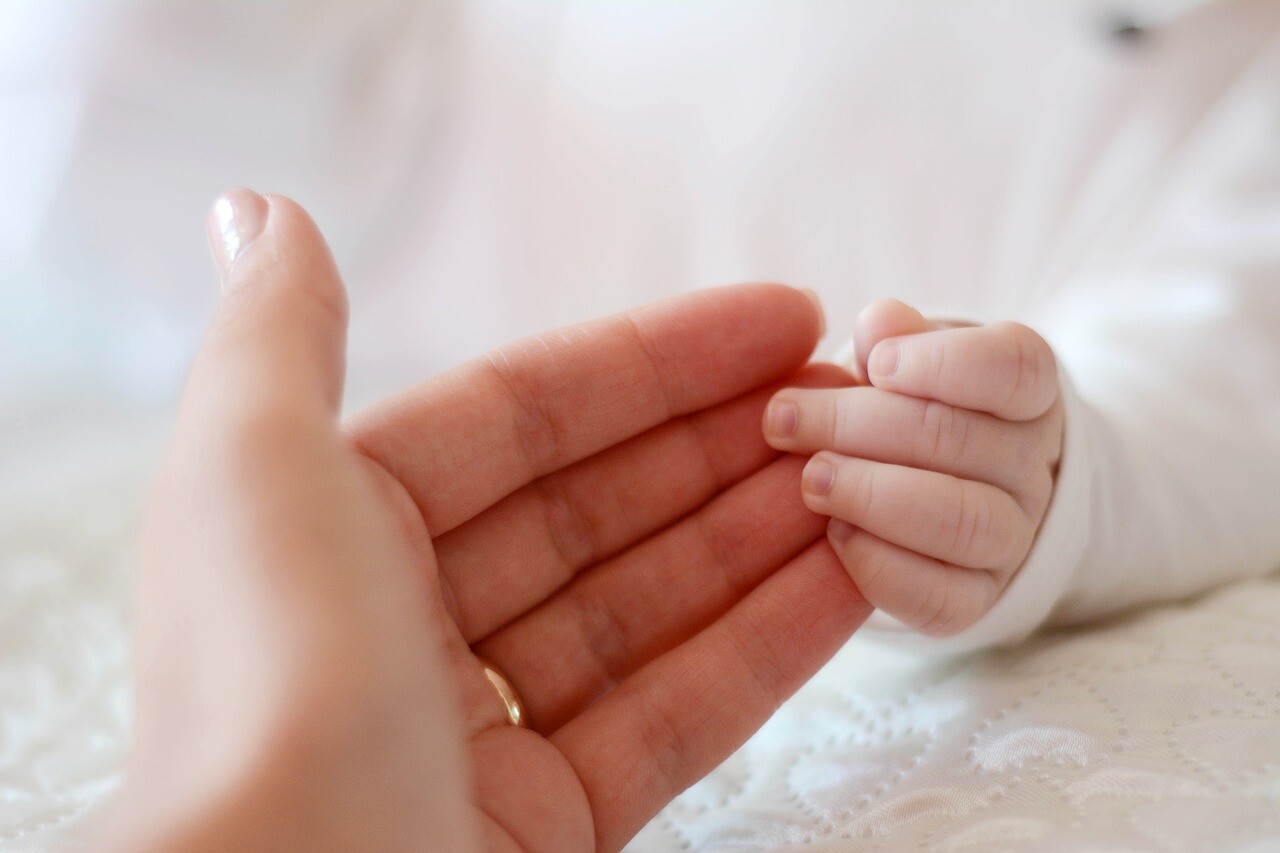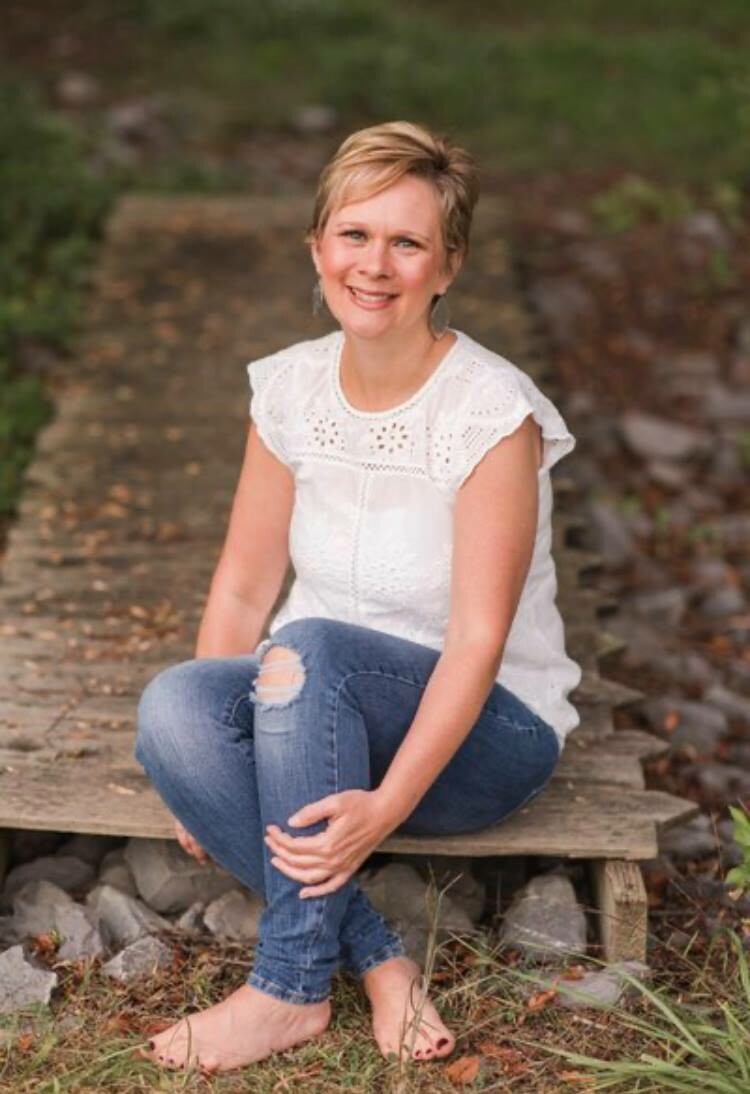
For more information about the systems of abuse, I recommend the book Safe Churches, written by Sarah McDugal, Jennifer Jill Schwirzer and Nicole Parker. In this post I am going to share several examples of each form of abuse (these come straight from the book). This is by no means an exhaustive list but is intended to help bring clarity to those who are living with an abusive person and/or to help those who know someone who is living with an abusive person.
From Safe Churches (page 66): “Sarah McDugal has documented 12 fundamental patterns of abuse, which all revolve around a thirteenth pattern: the core attitude of entitlement and the right to take power over another person.
Before we delve deeper, it is important to acknowledge that every human alive has capacity to be abusive, given the right circumstances. If we define abuse purely as a single action or one discrete occurrence of a behavior, then every time you behave badly, you could be labeled an abuser. That isn’t how abuse is defined. People don’t automatically become abusers every time they feel self-centered or act impatient.
Rather, as we discuss later in this chapter, abuse is defined as a system or power of behaviors in which someone with greater power uses their advantage to exploit or cause harm to someone with lesser power. When a system of persistent power exploitation exists, you are now dealing with an abuser.”
These systems are explained on pages 68-77 of Safe Churches. I encourage you to buy a copy of this book as soon as you are able and share it with other Christians that you know. For shareable infographics on patterns of abuse, visit Sarah's website.
1. Child Abuse may include:
Threatens to harm children
Doesn’t pay child support
Belittles you in front of kids
Leverages kids to keep you silent
Abuses other people’s children
Scares or hurts you in front of kids
2. Cultural Abuse
Mistreats you and blames it on culture
Demeans your heritage
Forces you to embrace their culture
Isolates you from mainstream culture
Uses expectations or shame to keep you silent
Isolates you through language barriers
Insults your family culture as inferior to theirs
3. Emotional Abuse
Invalidates your perception of reality
Insults you then says, “I’m joking!”
Denies affection, goes silent
Manipulates you with false guilt
Flips arguments back on you
Acts possessive (calls it protective}
Vacillates—creates relationship rollercoaster
Blames you for things that aren’t your fault
Refuses to take responsibility for what they did
Says “sorry” and promises to change, but doesn’t
Withholds nonsexual affection
4. Financial Abuse
Limits your money
Refuses to share accounts
Tracks every penny you spend
Spends impulsively, incurs debts
Interferes with welfare or state aid
Makes all financial decisions
Lies about money, time, activities
5. Intellectual Abuse
Demands perfection
Insists on proof of your right to opinions
Dumbs you down
Intimidated by your mind
Attacks your ideas, devalues your convictions
Refuses to allow you to disagree
Manipulates information flow
Invalidates others if they point out abusive behaviors
Judges others for small mistakes but gives self grace for moral failures or rule-breaking
6. Pets and Property Abuse
Confiscates your keys/ID/Driver’s License
Damages your car, refuses to keep it maintained
Trashes your favorite things, says it was accidental
Harms your pets, gives them away
Punches walls, slams doors
Controls your access to electronics
Threatens to do any of the above
7. Physical Abuse
Drives recklessly, road rage
Disturbs your sleep
Chokes, restrains, controls breath
Blocks exits, won’t let you leave
Prevents you from getting medical care
Throws things, uses items other than hands to cause you pain or fear
Slap/hit/kick/punch/bite/pinch/spit
Locks you out of the house, makes you sleep outside
Doesn’t control own strength when being playful, is indifferent to pain caused
Postures aggressively to intimidate you
8. Psychological Abuse
Gaslights you—says or does things, denies it later
Terrorizes you—then acts like it never happened
Controls minute aspects of your life—food, fun, friends, etc.
Projects responsibility for addictions on to you or others
Claims you misunderstood when you quote back their threats
Displaying weapons as a way to keep you afraid
Convinces you they know better than you do
Controls your access to food, freedom to eat
Tells bold or white lies
Reverses questions to make you feel paranoid
Demonstrates lack of empathy
Can’t discern your emotions accurately
Threatens to hurt or kill themselves or others
9. Sexual Abuse
Forces or withholds sex
Criticizes your body or sexuality
Demands sex as payment
Uses pornography or makes you use porn
Has affairs or threatens to cheat
Pays for sexual services from others
Shares sexual fantasies about others/your friends
Lacks intimacy and connection
Sexually abuses or molests others
10. Social Abuse
Monitors your communication (phone, email, text)
Tracks your social media
Monitors your milage
Discourages your friendships
Dictates freedom for education/employment
Obsesses on body image an appearance
Limits equal social access
Expects others to keep secrets, maintains glossy public image regardless of reality
Keeps you at home
11. Spiritual Abuse
Twists Scripture to avoid accountability
Uses beliefs to gain advantage
Leverages spiritual leaders against you
Silences you with Bible verses
Puts down your convictions or beliefs
Isolates you from your faith community
Dictates your access to counseling/mentorship
Believes you need them to teach you about God
Soul-destroying behaviors
12. Verbal Abuse
Tells you how to do everything
Cuts you off in conversation
Puts you down
Forbids you from talking to others about issues
Shames, silences, or insults you
Ridicules your appearance, abilities, etc.
Jokes condescendingly toward others
Intimidated you with words or tone
Yells/screams/swears/calls you names
Demands that you keep secrets
13. Core Mindset of Power Abuse and Entitlement
Creates chaos—gains control by turning people against each other
Credit hog—takes others ideas, doesn’t share glory
Delusions of grandeur—believes they’re smarter/wiser/stronger/more powerful than reality
Dictates belief system for everyone in the household
Entitled—acts as if others should give way to their preferences, or take care of their needs
Supremacist—looks down on culture, color, gander, age, status, thinks own identity is superior
Obsesses with “respect”—may get aggressive to peers/children/elderly who act with perceived disrespect
Fixated on appearances—expects other to keep secrets, maintain glossy public image regardless of reality
This list is not exhaustive, but it is certainty a tool that will turn the light on for many. As I typed this, I had a few additional thoughts. Remember, this is describing patterns of abuse. Every single person is capable of hurting others. But, when a normal, healthy person hurts another person and realizes the damage that was caused, they want to make things right. An apology and changed behavior go a long way in these situations.
Also, if your husband has had an affair and/or is a porn addict and you ask to see his devices or hold him to account, that does not make you an abusive wife. If you do not feel safe being sexually intimate with your husband for the same reasons, that does not make you abusive. You are experiencing trauma from sexual betrayal and I advise you to seek the counsel of a trauma informed therapist who specializes in this area.
If this post gave you clarity that you did not have before, I encourage you to take deep, cleansing breaths and do not panic. You are not alone. There are countless women who have experienced many of these forms of abuse. There are amazing survivors, advocates and therapists who are rising up to speak truth and to walk with you from darkness into light. Join us on Facebook at Held & Healed: Christian Women Rebuilding After Abuse. I have organized hundreds of healing resources for you into guides so that you can search out the topics that most affect you and begin learning, healing, and growing.
If you are a woman who loves other women who are walking this road, please join us at Held & Healed. If you are man and/or a pastor who genuinely cares about these women and wants to learn how to help and not further hurt, feel free to contact me through my website, HeatherElizabeth.org. There are several ministries that I can recommend who have created training tools to help ministry leaders make churches safe for survivors.
Abuse is rampant in the faith community. These systems described in this post are in place in more church homes than not. We must not ignore this epidemic any longer. It is not going away until we begin to take a stand for truth, righteousness, and justice. Jesus came to set the prisoners free. If we are His followers, that is our call too.

All it took was a meme.
A simple combination of words.
And, here I am, weeping.
Again.
“Domestic violence impacts the entire family. Children who WITNESS domestic violence suffer the same long-term effects as children who EXPERIENCE it directly.”
I did not know that twenty years ago.
If I knew then what I know now…
I'm heard people say, "He's not a good husband, but he's a good dad."
No.
A good dad is also a good husband.
Domestic violence is so much more than broken bones and bruises.
If a man puts his hands on his wife, the children will be affected.
If a man threatens his wife, the children will be affected.
If a man spews hate-filled words at his wife, the children will be affected.
If a man uses the Word of God as a weapon against his wife, the children will be affected.
If a man rapes his wife and treats her like a prostitute, the children will be affected.
If a man withholds finances from his wife and denies that her basic needs be met, the children will be affected.
If a man denies his wife and kids access to medical care, the children will be affected.
If a man sabotages every holiday or special occasion, the children will be affected.
If a man puts his fist through the wall or kicks down a door, the children will be affected.
I could go on, but I am certain you get the picture.
A man can do severe physiological damage to his children without ever laying a hand on them.
My heart is breaking for mamas and children today.
You may not see a way out, but there are so many who are finding safety and hope.
Ladies, please join us at Held and Healed: Christian Women Rebuilding After Abuse.
In this group, I share hundreds of resources to help you on your healing journey.
You are not alone.

Over the past thirty years, I have been involved in youth ministry. Youth group. Youth camps. Youth retreats. Mission trips. I have been exposed to most denominations within the Christian faith community, and I saw concerns in every corner.
I took a strong stand to protect young people from physical and sexual predators and was even laughed at in certain settings for doing so. Laughed at for raising awareness about dangerous possibilities for our precious children. Now that I understand trauma, I realize there were so many other ways we should have and could have protected them. When we know better, we must do better.
This is a plea to anyone and everyone who works with children, middle schoolers, high schoolers, and college aged students. From the bottom of my mama’s heart, I am asking us all to look at what we have done, survey the damage we have caused or allowed (whether intentional or not) and do what we can to reconcile the broken-hearted back to the heart of the Father.
First, and foremost, we must do a better job of vetting the adults we allow to work with our young people. Predators are everywhere and they love, love, love preying upon innocent, naïve and vulnerable children. A criminal background check is a step in the right direction, but only a small percentage of sexual abuse cases are reported, and of that number, an even smaller number of convictions. As the #metoo movement gave courage to the #churchtoo movement, more cases are being reported than ever before. So many were assaulted when they were minors, sworn or threatened to secrecy and are now adults who are finding a voice to share their stories. Many churches fail to go to the authorities, sweep these cases under the rug, allow the predator to remain in leadership or quietly dismiss him and he moves on to another church or community and continues abusing children.
I have learned so much from my own life experiences and from advocates who are experts in this field. Jimmy Hinton of JimmyHinton.org co-hosts The Speaking Out Against Sexual Abuse podcast with his mother, Clara Hinton. Their story is gut-wrenching and heart-breaking, as Jimmy’s own father and childhood hero, also a pastor, was convicted of heinous crimes against children. Jimmy tells his story and calls churches to account in his book, The Devil Inside: How My Minister Father Molested Kids in Our Home and Church for Decades and How I Finally Stopped Him. I listen to their podcast weekly and have learned so much from these warriors. If you are ready and willing to make your church a safe place for others, this is a great place to begin. My favorite quote, in the final chapter of his book, sums up Jimmy’s heart: “Survivors have been badly wounded, both by their abusers and by the church. My congregation doesn’t look down on them. We welcome them! Where other churches are welcoming predators and shunning victims, we are welcoming victims and shunning predators.” (Page 152)
Dale Ingraham is the author of Tear Down the Wall of Silence: Dealing with Sexual Abuse in our Churches. I reached out to him for some baseline requirements for vetting adults who work with children. “…background checks are only a first step. Keep in mind that only 2-4% of sexual predators ever go to prison. So over 90% of sex offenders will pass a background check.
1. Everyone fills out an application (you should be able to find a good application online)
2.Background checks
3. Check all references
4. All workers should go through abuse prevention training every year.
5. Windows in all doors, except of course, bathrooms.
5. Appropriate number of adults per child ratio.
6. There should be a trained staff member who walks the hallways keeping track of classrooms through the windows and observing who is coming and going.
7. Cameras in appropriate places.
There are other guidelines. I would say an excellent source would be Basyle (Boz) Tchividjian’s book...’The Child Safeguarding Policy Guide’ for churches and Ministries.”
Sarah McDugal and Daron Pratt co-authored Myths We Believe, Predators We Trust: 37 Things You Don’t Want to Know About Abuse in Church (But You Really Should). THIS BOOK IS A QUICK READ AND A MUST FOR ALL CHRISTIANS. PLEASE, PLEASE, PLEASE READ IT.
Myth: “Ignoring abuse doesn’t impact evangelism.”
Myth: “Churches are safe because we are a family of believers.”
Myth: “Abusers are easy to spot, socially awkward and tend to stay on the fringes.”
Myth: “My church is filled with really nice people, I probably don’t know any perpetrators of abuse.”
Myth: “Perpetrators wouldn’t dare show up at my church.”
Myth: “Real abuse is obvious.”
Myth: “Most reports of abuse are made up by people pretending to be victims.”
Myth: “Getting falsely accused is a huge risk for good men.”
Myth: “Abusers don’t usually have multiple victims.”
Myth: “When someone is abused, they usually tell right away.”
Myth: “If something was happening in my church, I’d be able to tell.”
Myth: “If someone said they were being abused, my church would defiantly believe them.”
Myth: “My church would never let a predator keep access to more victims.”
Myth: “A person who keeps making noise about abuse is a troublemaker.”
Myth: “Victims of abuse are welcomed and supported at my church.”
Myth: “Sexual addiction and abuse is an adult issue.”
Myth: “When an abuser cries and says they’ve changed, we should believe them and extend grace.”
Myth: “If an abuser has acted repentant for at least six months, we should trust them again.”
Myth: “Courts often get it wrong and churches should be known for grace, forgiveness, and second chances.”
Myth: “If someone was never convicted in a criminal court, we should assume they’re innocent.”
Myth: “If someone is abusing you, go to them alone and follow Matthew 18 first.”
Myth: “Scripture traches us to handle abuse internally.”
Myth: “Church members report abuse as often as everyone else.”
Myth: “Church leaders should stick together and have each other’s back.”
Myth: “When you forgive something, you aren’t supposed to bring it up ever again.”
Myth: “Good Christians will seek to restore and reconcile as quickly as possible no matter what.”
Myth: “Loving an abuser means giving them another chance.”
Myth: “Pornography isn’t “real” adultery, and shouldn’t be blown out of proportion.”
Myth: “People who accuse others of abuse are usually lying.”
Myth: “If someone was abusing a child in my church, I would definitely pick up on the red flags.”
Myth: “All child abusers are pedophiles.”
Myth: “If (someone) is sexually abusing children, it’s because they aren’t sexually satisfied at home.”
Myth: “Sometimes children lead abusers on and ask for it.”
Myth: “My child would absolutely tell me if someone was hurting them or touching them.”
Myth: “Abuse is caused by anger problems or childhood trauma and we should feel sorry for abusers.”
Myth: “The abuser said it was a one-time mistake and we should take their word for it.”
Myth: “If we have background checks and good policies, our church will be totally safe.”
Sarah McDugal, Jennifer Jill Schwirzer and Nicole Parker authored Safe Churches: Responding to Abuse in the Faith Community. This book is a must for every pastor, ministry leader and people helper. The book outlines the systems of abuse (abuse is so much more than broken bones and bruises): child abuse, cultural abuse, emotional abuse, financial abuse, intellectual abuse, pets and property abuse, physical abuse, psychological abuse, sexual abuse, social abuse, spiritual abuse, and verbal abuse.
“Safe Churches is for you if you want to…
Discover how to recognize and respond to red flags.
Feel more equipped to educate your church staff.
Protect the vulnerable.
Discern genuine repentance.
Reflect God’s character to your church’s children.
“Safe Churches presents proven approaches to handling abuse at church in ways that are both biblically redemptive and legally responsible.” (From Sarah’s website)
These three books are a great place to begin. Beyond these resources, there are ministries that are equipping churches to become safe havens. Data bases are being created, to reveal convicted sex criminals in various denominations and to showcase churches and individuals who are trained as safe resources.
Jimmy Hinton: https://jimmyhinton.org/
Sarah McDugal: https://www.wildernesstowild.com/
Chris Moles: http://www.chrismoles.org/
Basyle "Boz" Tchivdjiam/Godly Response to Abuse in the Christian Environment G.R.A.C.E.: https://www.netgrace.org/
This post is a work in progress. I am reaching out to experts in this field and will add baseline steps that need to be taken when choosing volunteers and staff who will work with children and youth. I am also collecting information regarding the legal and responsible ways to report abuse cases.
While this post focuses mostly on protecting youth from physical and sexual abuse, I also feel compelled to write about keeping them safe emotionally, mentally, and spiritually. Part 2 is coming soon.

"Heather, the best gift you can give your sons is your own healing."
At that time, I was sick, sick, sick.
Sick in my body.
Sick in my mind.
Sick in my spirit.
I was 41 years old and had endured abuse almost every day of my life.
She said her most common client demographic is women in their mid-thirties to mid-forties.
Why?
We take care of everyone else and neglect ourselves.
By this age, we are wounded, weary, and worn.
We simply cannot do all the things for all the people anymore.
She knew those words would motivate me like no other words, because she knew that my sons were...are...my greatest treasures on this earth.
Almost five years ago, I was stricken with a debilitating disease that put me flat on my back for months on end.
Those months turned to years of barely being able to function.
I could no longer care for my sons, I could no longer be creative in their homeschooling, I could no longer care for their basic needs, I could no longer volunteer for the ministries that I believed in, I could no longer stand up long enough to lead worship, I could no longer serve the ones I loved...
Through a series of events, I came to realize that my body wasn't the only broken part of me.
Suddenly, I was made aware of realities like C-PTSD, Narcissistic Personality Disorder, gas-lighting, spiritual abuse, layered on top of a complicated medical diagnosis.
Separation and divorce.
Parental alienation and empty-nesting.
Betrayal.
The ones who were called to love me and stand by me walked out when I was at my lowest.
My body was broken.
My mind was broken.
My spirit was broken.
I heard her words that day and I decided I would do anything in my power to experience healing, for the sake of my precious boys and the generations to come.
I would do the hard work...the heart work...to welcome deliverance, restoration and freedom into my bloodline.
Several years have passed and I assure you, I am not the same person I was when I first walked into that counselor's office.
My body is stronger and healthier than it has been in 30 years.
My mind is focused and clear.
My spirit is alive.
I am grateful for each part of my journey.
The good.
The bad.
The ugly.
My pain is not in vain if it helps others gain their healing.
If you would like to learn more tips for every day living, join us on Facebook at Learn More About Health and Wellness.
If you are a Christian woman who is rebuilding after an abusive marriage, join us at Held & Healed, a beautiful community of survivors.
Check out my online coaching course, Rebuilding: Body, Mind & Spirit!












